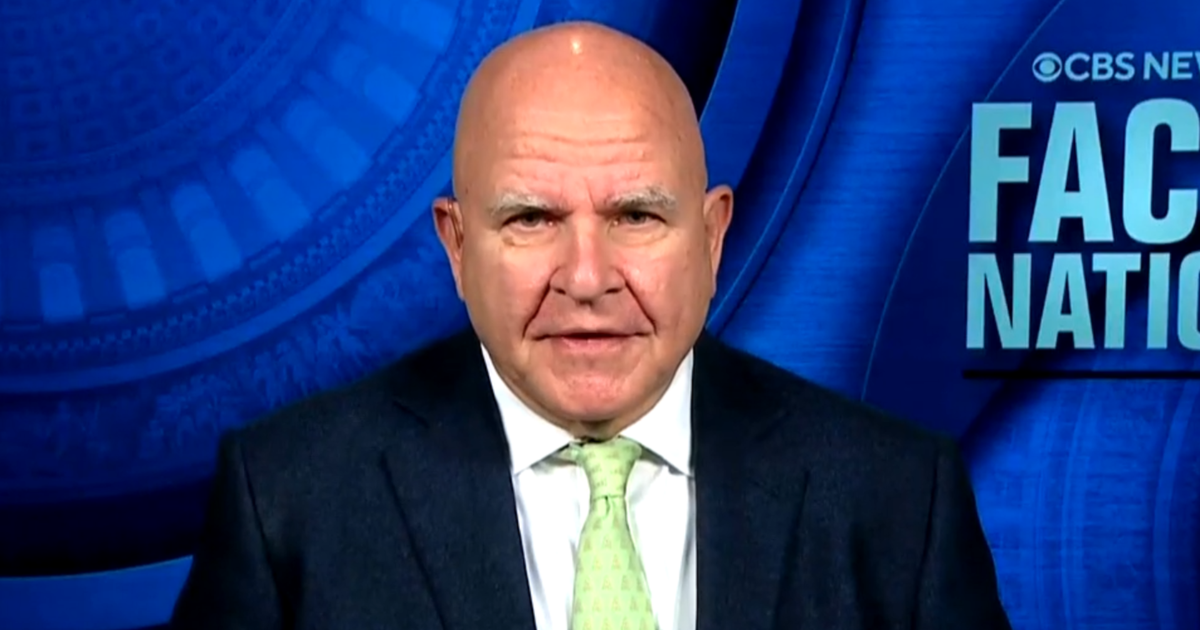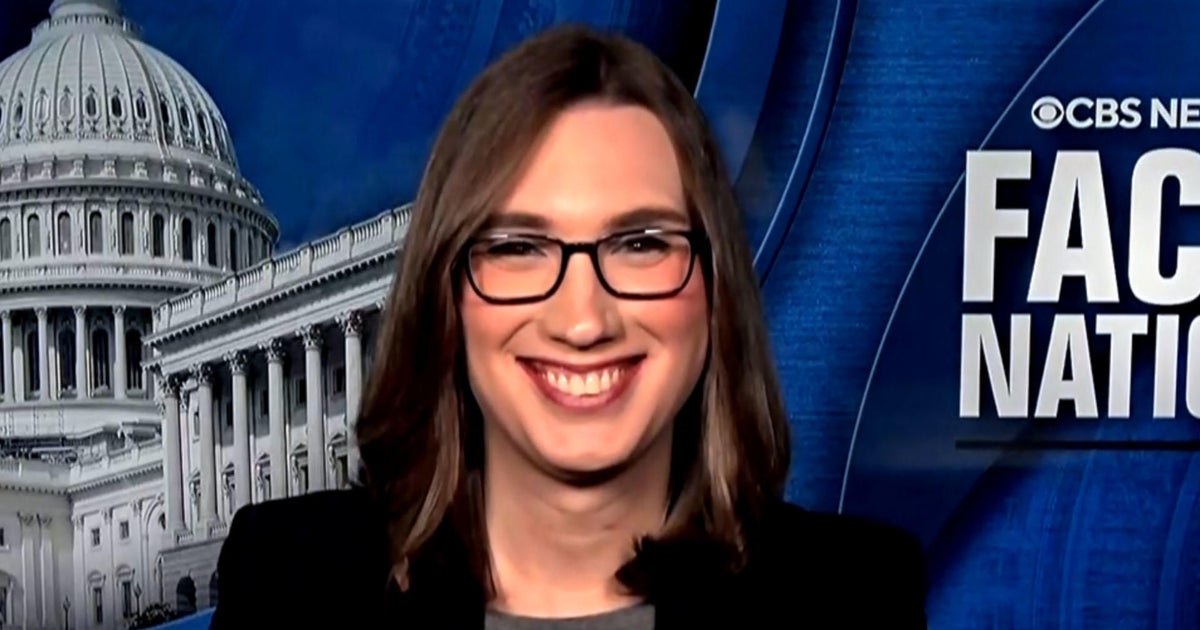CBS News
FEMA urged to add extreme heat, wildfire smoke to list of disasters

A coalition of organizations is calling on the Federal Emergency Management Agency to add extreme heat and wildfire smoke to its list of scenarios worthy of being labeled a major disaster.
Dozens of environmental, health and labor groups on Monday filed a petition with FEMA in a bid to unleash FEMA funds that historically have been used to respond to disasters such as floods, earthquakes and hurricanes that damage infrastructure.
The groups including AFL-CIO, Friends of the Earth and the Alliance of Nurses for Healthy Environments argue that the step would help areas be prepared for heat waves and wildfire smoke by helping finance cooling centers or air filtration systems in schools.
As things stand, states and local communities have been largely on their own in dealing with extreme heat, which kills more Americans each year than hurricanes, floods and tornadoes combined, according to the National Weather Service.
The death certificates of more than 2,300 people who died in the U.S. last year mention the effects of lexcessive heat. That’s the highest number in 45 years of recordkeeping, according to an Associated Press analysis of Centers for Disease Control and Prevention data.
Labor groups and the White House have advocated that the Labor Department publish a draft heat regulation, as millions of people work outside or without air conditioning. Major businesses and industry groups including the U.S. Chamber of Commerce are against new rules.
The impact of extreme heat on workers is particularly acute in states like Texas, according to one labor group behind the petition.
“The impact of the climate crisis coupled with the fact that Texas is the most dangerous state to work in makes the detrimental impact of heat and wildfire smoke an increasing threat for all Texans,” Margarita Del Cid, Workers Defense Dallas member-leader, said in a statement. “One construction worker dies every three days in Texas and a huge factor in these deaths is heat, whether it’s heat stroke or hyperthermia or in some cases, prolonged illness.”
The 1988 Stafford Act permits the federal government to declare a disaster or emergency, but does not specifically include extreme heat on a list of 16 causes. FEMA can respond to requests for federal assistance when states and localities need the additional help, and there’s nothing specific in the Stafford Act that precludes a declaration for extreme heat, according to the agency.
CBS News
Former Trump national security adviser says next couple months are “really critical” for Ukraine

Washington — Lt. Gen. H.R. McMaster, a former national security adviser to Donald Trump, said Sunday that the upcoming months will be “really critical” in determining the “next phase” of the war in Ukraine as the president-elect is expected to work to force a negotiated settlement when he enters office.
McMaster, a CBS News contributor, said on “Face the Nation with Margaret Brennan” that Russia and Ukraine are both incentivized to make “as many gains on the battlefield as they can before the new Trump administration comes in” as the two countries seek leverage in negotiations.
With an eye toward strengthening Ukraine’s standing before President-elect Donald Trump returns to office in the new year, the Biden administration agreed in recent days to provide anti-personnel land mines for use, while lifting restrictions on Ukraine’s use of U.S.-made longer range missiles to strike within Russian territory. The moves come as Ukraine marked more than 1,000 days since Russia’s invasion in February 2022.
Meanwhile, many of Trump’s key selection for top posts in his administration — Rep. Mike Waltz for national security adviser and Sens. Marco Rubio for secretary of state and JD Vance for Vice President — haven’t been supportive of providing continued assistance to Ukraine, or have advocated for a negotiated end to the war.
CBS News
McMaster said the dynamic is “a real problem” and delivers a “psychological blow to the Ukrainians.”
“Ukrainians are struggling to generate the manpower that they need and to sustain their defensive efforts, and it’s important that they get the weapons they need and the training that they need, but also they have to have the confidence that they can prevail,” he said. “And any sort of messages that we might reduce our aid are quite damaging to them from a moral perspective.”
McMaster said he’s hopeful that Trump’s picks, and the president-elect himself, will “begin to see the quite obvious connections between the war in Ukraine and this axis of aggressors that are doing everything they can to tear down the existing international order.” He cited the North Korean soldiers fighting on European soil in the first major war in Europe since World War II, the efforts China is taking to “sustain Russia’s war-making machine,” and the drones and missiles Iran has provided as part of the broader picture.
“So I think what’s happened is so many people have taken such a myopic view of Ukraine, and they’ve misunderstood Putin’s intentions and how consequential the war is to our interests across the world,” McMaster said.
On Trump’s selections for top national security and defense posts, McMaster stressed the importance of the Senate’s advice and consent role in making sure “the best people are in those positions.”
McMaster outlined that based on his experience, Trump listens to advice and learns from those around him. And he argued that the nominees for director of national intelligence and defense secretary should be asked key questions like how they will “reconcile peace through strength,” and what they think “motivates, drives and constrains” Russian President Vladimir Putin.
Trump has tapped former Rep. Tulsi Gabbard to be director of national intelligence, who has been criticized for her views on Russia and other U.S. adversaries. McMaster said Sunday that Gabbard has a “fundamental misunderstanding” about what motivates Putin.
More broadly, McMaster said he “can’t understand” the Republicans who “tend to parrot Vladimir Putin’s talking points,” saying “they’ve got to disabuse themselves of this strange affection for Vladimir Putin.”
Meanwhile, when asked about Trump’s recent selection of Sebastian Gorka as senior director for counterterrorism and deputy assistant to the president, McMaster said he doesn’t think Gorka is a good person to advise the president-elect on national security. But he noted that “the president, others who are working with him, will probably determine that pretty quickly.”
CBS News
Sen. Van Hollen says Biden is “not fully complying with American law” on Israeli arms shipments

Watch CBS News
Be the first to know
Get browser notifications for breaking news, live events, and exclusive reporting.
CBS News
Rep.-elect Sarah McBride says “I didn’t run” for Congrees “to talk about what bathroom I use”

Watch CBS News
Be the first to know
Get browser notifications for breaking news, live events, and exclusive reporting.



